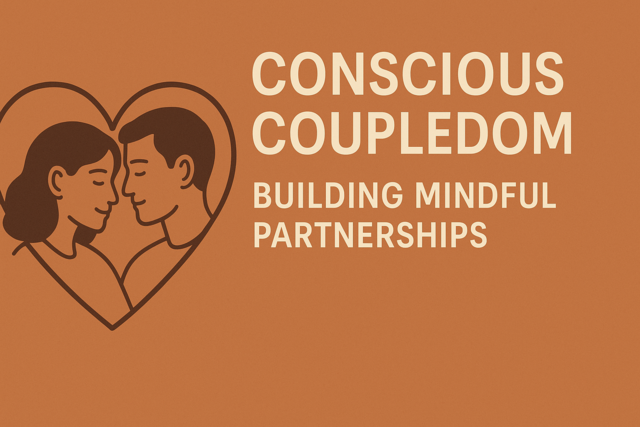Online Class: Unpacking Attachment Styles — Keys to Healthier Relationships

no certificate
with CEU Certificate*
-
15Lessons
-
22Exams &
Assignments -
3Hours
average time -
0.3CEUs
Course Description
Course Title: Unpacking Attachment Styles: Keys to Healthier Relationships
Imagine a world where every one of your relationships, from the most personal to the professional, is thriving, healthy, and deeply fulfilling. Picture a life where you walk into every social setting with confidence, secure in who you are, and filled with a genuine curiosity and openness about others. This vision is not just a dream; it is entirely within your grasp. Welcome to "Unpacking Attachment Styles: Keys to Healthier Relationships."
Everyone has a relational blueprint, a unique pattern of connecting with others that shapes the fabric of their lives. This course invites you on a transformative journey into the depths of these patterns, unraveling the mysteries of attachment styles that color every aspect of your interactions. This isn't merely an academic pursuit; it's a profound exploration into the heart of human connection, uniquely tailored to empower you with actionable insights and tools to craft healthier relationships.
Why is this course essential? Because understanding your attachment style is like holding a master key to your relational world. This knowledge unveils how your earliest experiences shape your present interactions and emotional responses, often in ways you might not even realize. Imagine being able to pinpoint why certain relationships are difficult to manage, why you might push people away, or why you're tirelessly seeking approval. By understanding these underlying dynamics, you unlock the potential to change them, enhancing not only your personal life but your professional realms as well.
Our expert instructors have woven together insights from pioneering researchers like John Bowlby and Mary Ainsworth with cutting-edge neuroscience and cultural psychology. This comprehensive approach allows you not only to understand the theory behind attachment but to appreciate its practical applications across cultures and communities. You'll emerge from this course not just informed, but transformed, with a rich perspective that'll enable you to navigate the common yet intricate web of human relationships with grace and authenticity.
One of the course's unique aspects is its integration of self-reflective practices, such as mindfulness and journaling, with therapeutic tools. These methodologies invite you to engage deeply with your own attachment style, providing a safe space for exploration and growth. The course encourages you to see vulnerability as strength, offering insights on how you can transform even the most insecure attachment patterns into opportunities for deeper connection and fulfillment.
Consider what your life could look like as a master of secure attachment. Professionally, this translates to emerging as an empathetic leader, someone who inspires trust and cultivates environments where collaboration and innovation flourish. Personally, it means enjoying relationships that are steady and supportive, filled with mutual respect and joy. By the end of this course, this level of relationship mastery will feel not only achievable but well within your everyday reality.
More than just theoretical insights, this course is about actionable change. Not only will you be equipped to identify and understand the nuances of attachment theory, but you'll also learn how to implement strategies that foster resilient, empathetic, and loving relationships. Through a blend of lectures, interactive discussions, and community-building, you'll join a supportive network of fellow learners, each inspired and committed to growth.
Imagine the power of walking through life with this transformative insight into how you and those around you relate. This isn't just another online course; it's an investment in yourself, a pivotal step toward becoming a beacon of positive, healthy connection in all your relationships.
Take that step now. Enroll in "Unpacking Attachment Styles: Keys to Healthier Relationships" and begin your journey to unlocking the relational mastery that lies within you. Because healthier relationships aren't just a benefit—they're the foundation of a vibrant, fulfilled life, and your transformation begins the moment you decide to start. Embrace this opportunity for change and watch how remarkably life can shift for the better.
- Completely Online
- Self-Paced
- 6 Months to Complete
- 24/7 Availability
- Start Anytime
- PC & Mac Compatible
- Android & iOS Friendly
- Accredited CEUs

Course Lessons
Lesson 1. Unlocking the Origins of Attachment: Bowlby and Beyond
Advancements in neuroscience have further validated Attachment Theory by linking early relational experiences with brain development, emphasizing secure attachments' beneficial effects on cognitive and emotional processes. Cultural psychology also enriches the theory, illustrating varying attachment expressions across diverse societies influenced by differing social norms and values.Lesson 2. Secure Attachment: A Lifelong Bond
Secure attachment, rooted in early caregiver interactions, promotes confident exploration and social engagement in children. Adults with this attachment style enjoy stable relationships, approaching conflicts as opportunities for deepened understanding and fostering empathy and effective leadership in professional contexts.Lesson 3. Exploring Attachment: From Insecurity to Security
Anxious attachment stems from inconsistent caregiving in childhood, leading to a fear of abandonment and a need for approval in adult relationships. Addressing these patterns through therapy and mindfulness can help transform anxious attachment into secure relationships.Lesson 4. Breaking the Cycle of Detachment
In early development, avoidant attachment forms when caregivers are emotionally unresponsive, teaching children to suppress their needs and rely on autonomy. As adults, these individuals battle a paradox of craving intimacy yet fearing dependency, impacting the depth of their relationships and emotional expression.Lesson 5. From Fear to Love: Transforming Attachment Patterns
Supportive communities and self-advocacy are vital for overcoming disorganized attachment, creating spaces where individuals glean shared insights and develop healthier relationships. Practices like mindfulness, journaling, and open communication cultivate emotional balance, self-compassion, and relationship resilience.Lesson 6. Beyond Bonds: Understanding the Foundations of Attachment Theory
Exploring early caregiver bonds, attachment theory reveals how these foundational connections shape one's emotional resilience and interpersonal dynamics. Through the Strange Situation experiment, Mary Ainsworth categorized attachment styles, offering insights into how trust and emotional regulation develop from infancy.Lesson 7. Attachment Styles
Attachment Theory, developed by Bowlby and expanded by Ainsworth, explores how childhood caregiver bonds influence lifelong relationship dynamics, highlighting four styles: secure, anxious, avoidant, and disorganized. Early caregiver responses sculpt individuals' abilities to trust and connect, as seen through secure individuals' reliance on mutual respect versus anxious individuals' need for constant validation.Lesson 8. The Strength in Vulnerability: Transforming Attachment Patterns
Disorganized attachment, born from unpredictable environments, merges anxious and avoidant tendencies, complicating intimacy and connection. Through self-discovery and therapeutic support, individuals can transform these patterns into clearer relationship dynamics.Lesson 9. Understanding Attachment: A Journey Through Relational Patterns
The neurobiology of attachment shows early caregiving impacts brain development, influencing emotional regulation and empathy. Secure attachments correlate with positive neurological outcomes, but brain plasticity enables change through therapy and mindful practices.Lesson 10. Attachment Dynamics: Building Deeper Connections
Secure attachment results from consistent caregiving, fostering balanced, emotionally open friendships that provide reliable support and group cohesion. Such individuals confidently share milestones without fearing judgment, contributing positively to their social ecosystems.Lesson 11. Exploring the Foundations and Evolution of Attachment Theory
Cultural variations greatly influence attachment styles, with different societies valuing independence or collectivism shaping caregiver responses. Attachment theory remains relevant in understanding diverse familial structures and cultural narratives, as it explores universal needs for connection and security.Lesson 12. Insecure Attachments: Origins, Impacts, and Transformation Pathways
Transformation towards secure attachment involves recognizing one's attachment style, using therapeutic tools like CBT and mindfulness to restructure thought patterns, and practicing healthier emotional responses. Building supportive networks further aids in crafting resilient interpersonal connections through open communication and emotional regulation.Lesson 13. Attachment Theory: Unraveling the Complex Web of Human Connections
By focusing on consistent emotional support, Attachment Theory informs strategies for personal development and improved relational dynamics across different life domains. It underscores the adaptability of attachment styles and the potential for positive change through supportive relationships and guided interventions like therapy.Lesson 14. Trust and Intimacy: The Secure Attachment Paradigm
Transforming insecure attachment into secure models involves self-awareness, empathy, and open communication, enabling individuals to build trust, set boundaries, and foster emotional connections. Regular reflection on attachment patterns promotes personal growth, enhancing relational well-being and emotional satisfaction.Lesson 15. Exploring Attachment: A Culturally Inclusive Perspective on Relationships
This lesson highlights the different ways secure attachment styles manifest in various cultures, emphasizing the interplay between cultural values and attachment theory. By examining these cultural nuances, individuals and professionals can cultivate deeper empathy and understanding across diverse relational landscapes.
Learning Outcomes
- Define the concept of attachment theory, including its origins and significance in understanding human relationships based on John Bowlby and Mary Ainsworth's work.
- Identify and distinguish between different attachment styles (secure, anxious, avoidant, and disorganized) and explain how these styles manifest in both children and adults.
- Demonstrate effective communication and conflict resolution strategies used by securely attached adults in personal and professional relationships.
- Identify and explain the role of oxytocin in forming secure attachment bonds during early caregiver-child interactions.
- Demonstrate an understanding of the cultural and societal influences on attachment styles by providing examples from both collectivist and individualistic societies, and explain their impact on the development of anxious attachment.
- Identify the behavioral patterns associated with anxious attachment and describe their origins with specific reference to early childhood experiences and caregiver interactions.
- Define the concept of avoidant attachment by identifying its origins and how it manifests in adult relationships.
- Demonstrate an understanding of strategies to foster healthier relationships and personal growth for individuals with avoidant attachment tendencies through specific techniques and exercises.
- Define disorganized attachment and identify its impact on adult relationships based on early childhood experiences.
- Demonstrate the ability to apply therapeutic interventions that promote secure attachments in individuals with disorganized attachment styles through role-play and exercises.
- Demonstrate an understanding of how secure and insecure attachments impact brain development by identifying key brain regions and their roles in emotional regulation.
- Describe the four primary attachment styles identified in the Strange Situation procedure and provide specific behavioral examples for each style.
- Explain how early attachment experiences influence adult relationship patterns and identify characteristics of securely and insecurely attached adults as observed in social and work environments.
- Demonstrate mastery of lesson content at levels of 70% or higher.
Additional Course Information

- Document Your Lifelong Learning Achievements
- Earn an Official Certificate Documenting Course Hours and CEUs
- Verify Your Certificate with a Unique Serial Number Online
- View and Share Your Certificate Online or Download/Print as PDF
- Display Your Certificate on Your Resume and Promote Your Achievements Using Social Media

Choose Your Subscription Plan
No Certificate / No CEUs
This course only
| Includes certificate | X |
| Includes CEUs | X |
| Self-paced |

|
| Instructor support |

|
| Time to complete | 6 months |
| No. of courses | 1 course |
Certificate & CEUs
This course only
| Includes certificate |

|
| Includes CEUs |

|
| Self-paced |

|
| Instructor support |

|
| Time to complete | 6 months |
| No. of courses | 1 course |
Certificates & CEUs
Includes all 600+ courses
| Includes certificate |

|
| Includes CEUs |

|
| Self-paced |

|
| Instructor support |

|
| Time to complete | 12 Months |
| No. of courses | 600+ |
Certificates & CEUs
Includes all 600+ courses
| Includes certificate |

|
| Includes CEUs |

|
| Self-paced |

|
| Instructor support |

|
| Time to complete | 24 Months |
| No. of courses | 600+ |
Related Courses
-
 6 hours
0.6 CEUs
Redefining Romance: Finding Love Beyond the Fairytale
+ More Info
6 hours
0.6 CEUs
Redefining Romance: Finding Love Beyond the Fairytale
+ More Info
-
 6 hours
0.6 CEUs
Fashion Forward: Trendsetting in the Modern Era
+ More Info
6 hours
0.6 CEUs
Fashion Forward: Trendsetting in the Modern Era
+ More Info
-
 4 hours
0.4 CEUs
Basic Household Maintenance Skills
+ More Info
4 hours
0.4 CEUs
Basic Household Maintenance Skills
+ More Info
-
 5 hours
0.5 CEUs
Contemporary Luxury: Redefining Modern Fashion
+ More Info
5 hours
0.5 CEUs
Contemporary Luxury: Redefining Modern Fashion
+ More Info
-
 4 hours
0.4 CEUs
Mysteries of the Quantum Realm
+ More Info
4 hours
0.4 CEUs
Mysteries of the Quantum Realm
+ More Info
-
 7 hours
0.7 CEUs
Healthy Lifestyle and Fitness Habits
+ More Info
7 hours
0.7 CEUs
Healthy Lifestyle and Fitness Habits
+ More Info
-
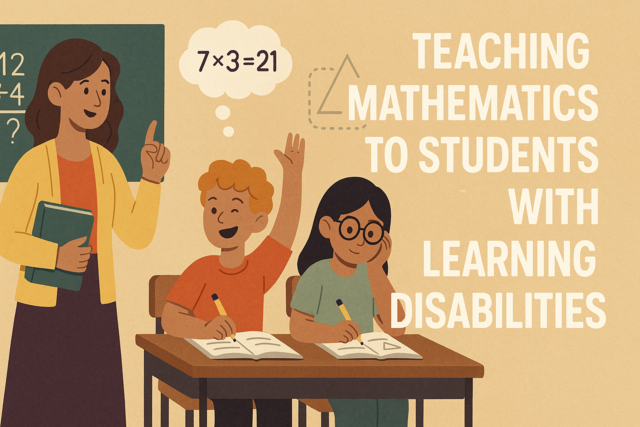 5 hours
0.5 CEUs
Teaching Mathematics to Students with Learning Disabilities
+ More Info
5 hours
0.5 CEUs
Teaching Mathematics to Students with Learning Disabilities
+ More Info
-
 3 hours
0.3 CEUs
Positive Reinforcement Techniques for Special Educators
+ More Info
3 hours
0.3 CEUs
Positive Reinforcement Techniques for Special Educators
+ More Info
-
 4 hours
0.4 CEUs
The Use of Analytics in Education
+ More Info
4 hours
0.4 CEUs
The Use of Analytics in Education
+ More Info
-
 7 hours
0.7 CEUs
Mastering Time Management for Professionals
+ More Info
7 hours
0.7 CEUs
Mastering Time Management for Professionals
+ More Info
-
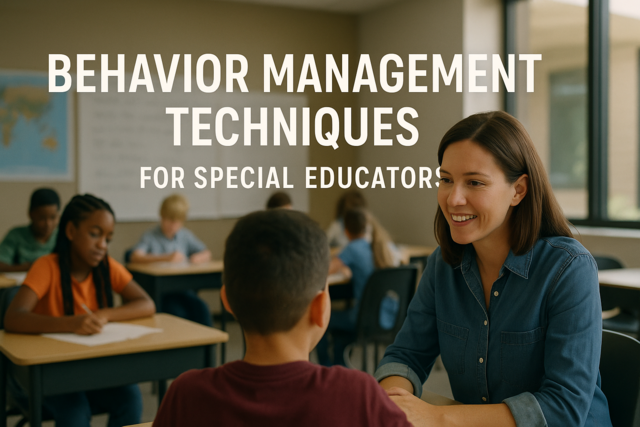 7 hours
0.7 CEUs
Behavior Management Techniques for Special Educators
+ More Info
7 hours
0.7 CEUs
Behavior Management Techniques for Special Educators
+ More Info
-
 7 hours
0.7 CEUs
Family Engagement and Support Strategies in Special Education
+ More Info
7 hours
0.7 CEUs
Family Engagement and Support Strategies in Special Education
+ More Info
-
 3 hours
0.3 CEUs
Addressing Trauma in Students with Disabilities
+ More Info
3 hours
0.3 CEUs
Addressing Trauma in Students with Disabilities
+ More Info
-
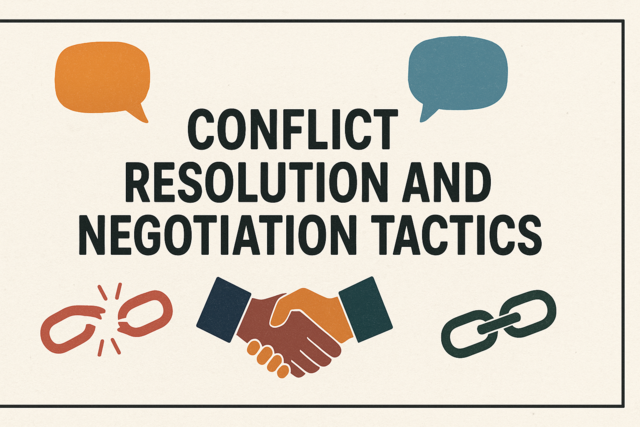 7 hours
0.7 CEUs
Conflict Resolution and Negotiation Tactics
+ More Info
7 hours
0.7 CEUs
Conflict Resolution and Negotiation Tactics
+ More Info
-
 5 hours
0.5 CEUs
Lunar Magic and Moon Phases
+ More Info
5 hours
0.5 CEUs
Lunar Magic and Moon Phases
+ More Info
-
 6 hours
0.6 CEUs
Building Effective Virtual Teams
+ More Info
6 hours
0.6 CEUs
Building Effective Virtual Teams
+ More Info
-
 7 hours
0.7 CEUs
Travel Planning and Safety Skills
+ More Info
7 hours
0.7 CEUs
Travel Planning and Safety Skills
+ More Info
-
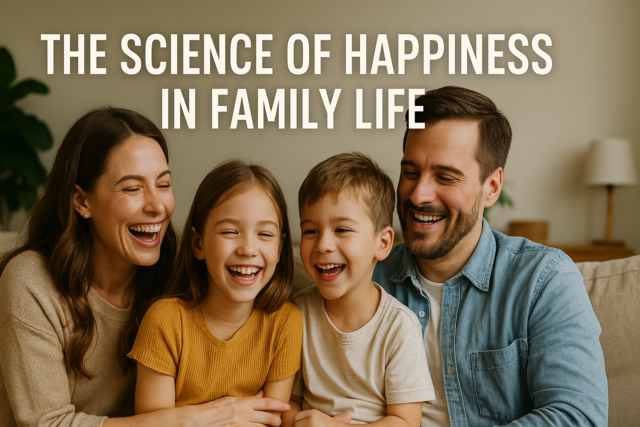 3 hours
0.3 CEUs
The Science of Happiness in Family Life
+ More Info
3 hours
0.3 CEUs
The Science of Happiness in Family Life
+ More Info
-
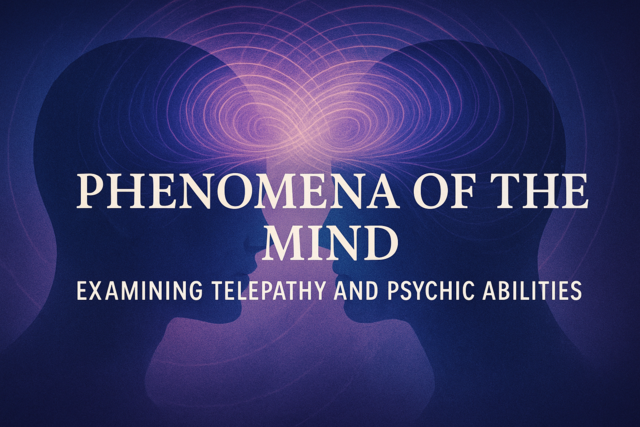 6 hours
0.6 CEUs
Phenomena of the Mind: Examining Telepathy and Psychic Abilities
+ More Info
6 hours
0.6 CEUs
Phenomena of the Mind: Examining Telepathy and Psychic Abilities
+ More Info
-
 7 hours
0.7 CEUs
Project Management Essentials for Office Teams
+ More Info
7 hours
0.7 CEUs
Project Management Essentials for Office Teams
+ More Info
-
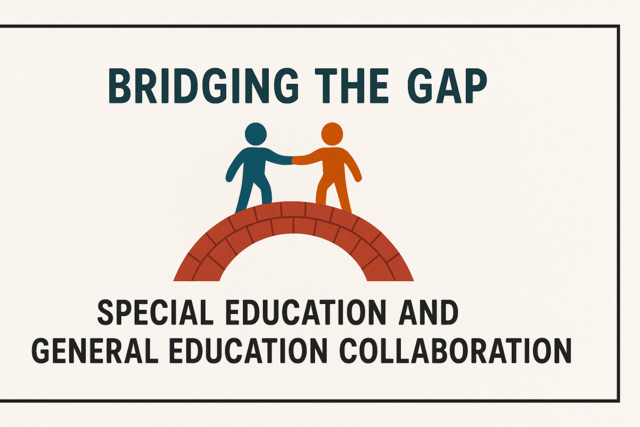 4 hours
0.4 CEUs
Bridging the Gap: Special Education and General Education Collaboration
+ More Info
4 hours
0.4 CEUs
Bridging the Gap: Special Education and General Education Collaboration
+ More Info
-
 4 hours
0.4 CEUs
Preparing for a Career Change
+ More Info
4 hours
0.4 CEUs
Preparing for a Career Change
+ More Info
-
 4 hours
0.4 CEUs
Utilizing Open Educational Resources
+ More Info
4 hours
0.4 CEUs
Utilizing Open Educational Resources
+ More Info
-
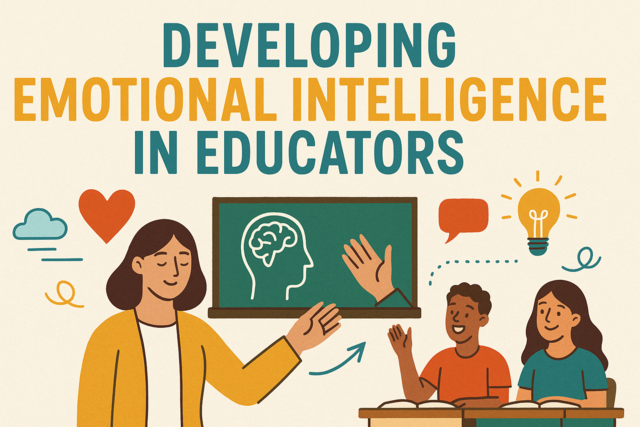 4 hours
0.4 CEUs
Developing Emotional Intelligence in Educators
+ More Info
4 hours
0.4 CEUs
Developing Emotional Intelligence in Educators
+ More Info
-
 7 hours
0.7 CEUs
Exquisite Ensembles: Curating a Modern Luxury Wardrobe
+ More Info
7 hours
0.7 CEUs
Exquisite Ensembles: Curating a Modern Luxury Wardrobe
+ More Info
-
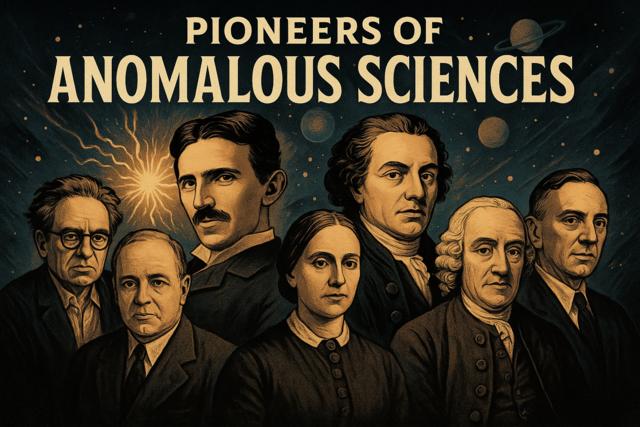 7 hours
0.7 CEUs
Pioneers of Anomalous Sciences
+ More Info
7 hours
0.7 CEUs
Pioneers of Anomalous Sciences
+ More Info
-
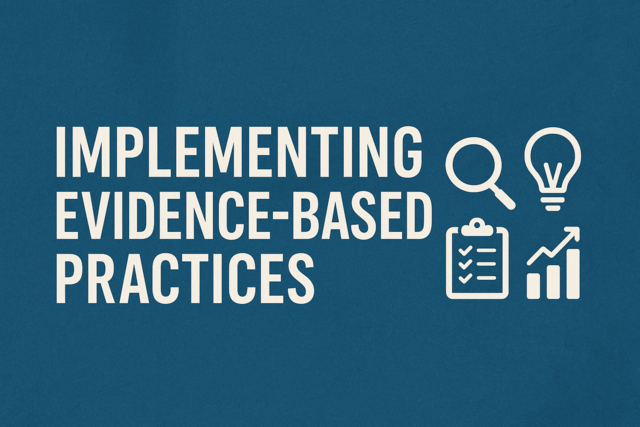 5 hours
0.5 CEUs
Implementing Evidence-Based Practices
+ More Info
5 hours
0.5 CEUs
Implementing Evidence-Based Practices
+ More Info
-
 6 hours
0.6 CEUs
Enhancing Customer Service Skills in the Office
+ More Info
6 hours
0.6 CEUs
Enhancing Customer Service Skills in the Office
+ More Info
-
 4 hours
0.4 CEUs
Collaboration Skills for Special Education Teams
+ More Info
4 hours
0.4 CEUs
Collaboration Skills for Special Education Teams
+ More Info
-
 6 hours
0.6 CEUs
Remote Leadership and Team Management
+ More Info
6 hours
0.6 CEUs
Remote Leadership and Team Management
+ More Info
-
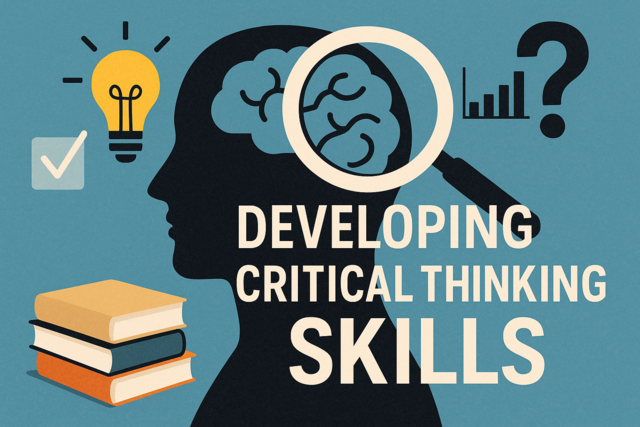 5 hours
0.5 CEUs
Developing Critical Thinking Skills
+ More Info
5 hours
0.5 CEUs
Developing Critical Thinking Skills
+ More Info
-
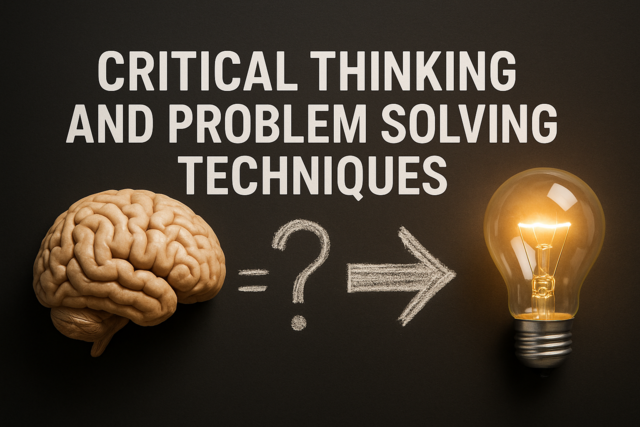 4 hours
0.4 CEUs
Critical Thinking and Problem Solving Techniques
+ More Info
4 hours
0.4 CEUs
Critical Thinking and Problem Solving Techniques
+ More Info
-
 6 hours
0.6 CEUs
Beyond Glamour: Women's Luxury Fashion Unveiled
+ More Info
6 hours
0.6 CEUs
Beyond Glamour: Women's Luxury Fashion Unveiled
+ More Info
-
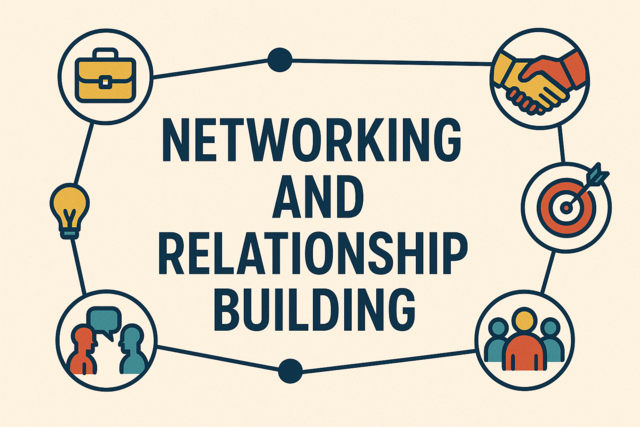 7 hours
0.7 CEUs
Networking and Relationship Building
+ More Info
7 hours
0.7 CEUs
Networking and Relationship Building
+ More Info
-
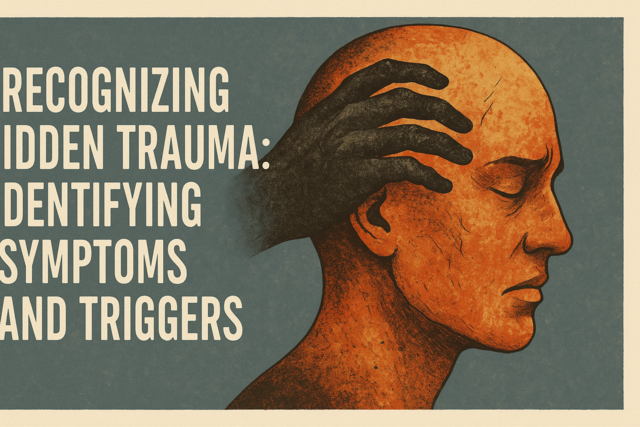 4 hours
0.4 CEUs
Recognizing Hidden Trauma: Identifying Symptoms and Triggers
+ More Info
4 hours
0.4 CEUs
Recognizing Hidden Trauma: Identifying Symptoms and Triggers
+ More Info
-
 7 hours
0.7 CEUs
Effective Minute-Taking for Meetings
+ More Info
7 hours
0.7 CEUs
Effective Minute-Taking for Meetings
+ More Info
-
 3 hours
0.3 CEUs
Transcend Trends: Creating Your Signature Look
+ More Info
3 hours
0.3 CEUs
Transcend Trends: Creating Your Signature Look
+ More Info
-
 3 hours
0.3 CEUs
Agile and Scrum Fundamentals
+ More Info
3 hours
0.3 CEUs
Agile and Scrum Fundamentals
+ More Info
-
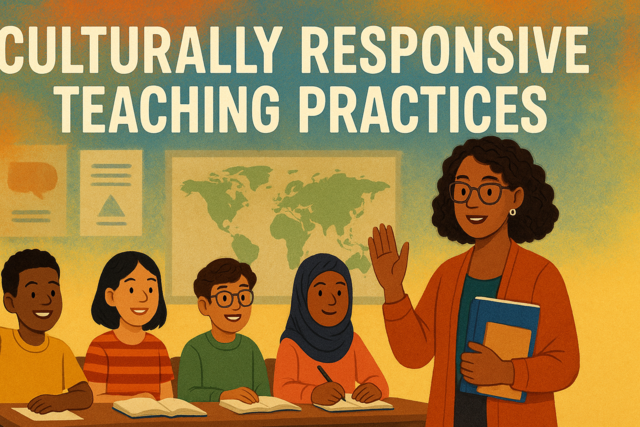 5 hours
0.5 CEUs
Culturally Responsive Teaching Practices
+ More Info
5 hours
0.5 CEUs
Culturally Responsive Teaching Practices
+ More Info




